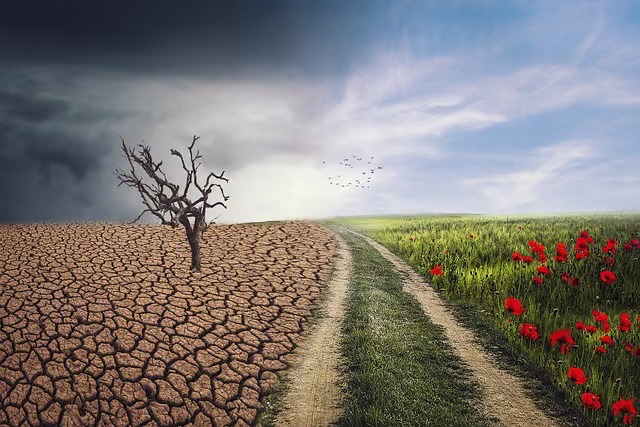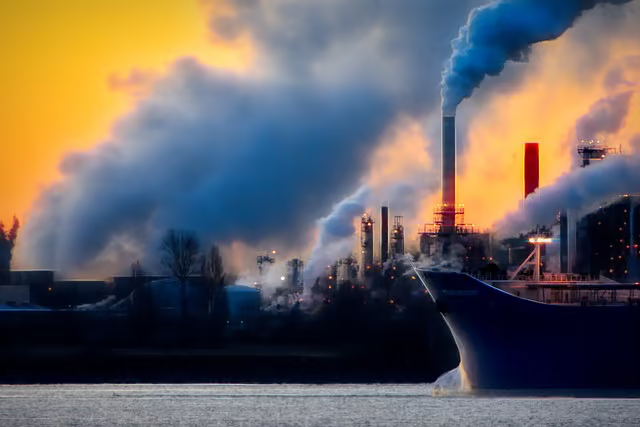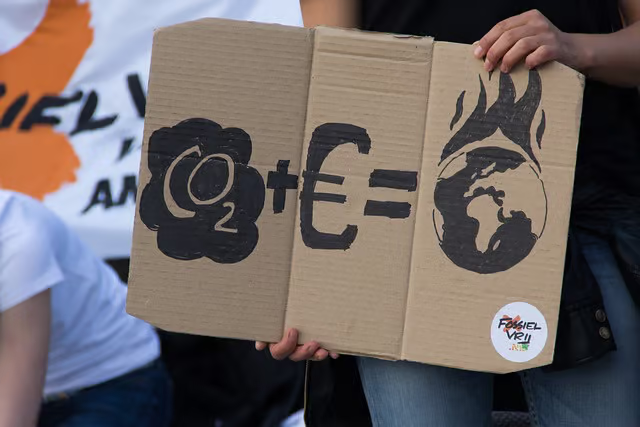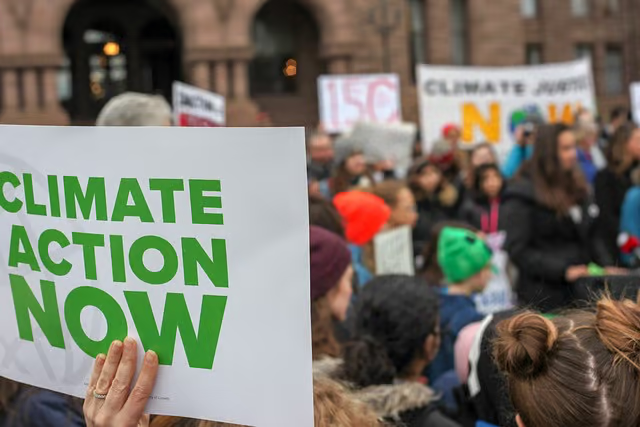Introduction
Experts and Scientists have warned about the need for all world leaders to address the current climate crisis. The consensus is that world governments should adopt politics and specific measures before the 2030 deadline.
While global awareness grows and the deadline draws near, implementing concrete action soon for a better future has become a critical chance to avoid an environmental calamity. When will we see a tangible shift in human cultures that will consider this crisis?
Thus, everyone must adhere to the timetable for a change to deter environmental damage. With new practices worldwide, we can ensure our prerogative towards the planet is met.
So, today's focus will be on the following:
- Explaining the climate crisis deadline, why we need to act now rather than later, and how individuals can contribute.
- Meeting this deadline is essential, considering how climate change directly impacts people's quality of life.
- What do we need to do to fulfill before the deadline? What practical measures could potentially stop climate change?
- Finally, what actions can you take today to make a difference?

What Exactly is Climate Crisis Deadline
The phrase 'climate crisis deadline' refers to the UN-imposed window of time in which countries must act immediately to avert the worst and most disastrous effects of climate change brought on by ozone depletion due to global warming. Read more about global warming as of today.
It is essential to clarify that the climate catastrophe deadline is not only a calendar date but also an estimate based on scientific study and analysis.
The time was chosen after great deliberation and extensive scientific study on climate change and its potential impacts on mankind. Several scientists and industry experts are concerned as a result of this since they feel that the deadline is drawing near and that urgent action is needed to reduce greenhouse gas emissions and make the transition to a more sustainable and low-carbon economy.
In this agreement, the IPCC also said that to avoid catastrophic consequences, including more frequent and stronger heat waves, droughts, floods, and storms, global warming should be kept to 1.5°C over pre-industrial levels. source: IPCC. Read more about global warming as of today.

Understand The Climate Crisis And The Significance Of A Deadline
To address the global climate issue successfully, it is necessary to understand what causes it and why a deadline is required.
The significant causes of climate change are human actions such as burning fossil fuels, chopping down forests, and raising animals, which emit greenhouse gases into the atmosphere and cause climate change. These gases, created by human actions, trap heat, which results in global warming and other negative repercussions on our planet. To put an end to this deadly action of ours, it becomes necessary to set a deadline so that we can guarantee that mankind does not continue to harm our ecosystem without consideration for the long-term consequences.
What Can We Do To Meet The Deadline?
Things we can do today to contribute to a sustainable future:
1. Personal Actions To Reduce Our Carbon Footprint
To meet the UN's set time limit, we must take substantial measures as a united world to reduce our carbon footprint. The actions include:
- Stop purchasing water in plastic bottles.
- Walk or bike to some of your favourite short-distance destinations.
- Always turn off lights and unplug devices when not in use.
- Consume more locally produced food.
- Use less energy.
By doing all the above and more, we could be on track to meet the 2030 deadline set by the Paris Agreement by the United Nations.
2. Governmental Policies To Combat Climate Change
President Biden has outlined a new plan, to address the climate crisis threat that awaits if no action is taken. Biden wishes to propel the world in addressing this crucial issue.
He suggests a series of actions allowing America to lead and enable the world to meet the set climate crisis deadline.
- Lowering greenhouse gas emissions in the United States by 50-52% below 2005 levels by 2030
- Reaching 100% carbon-free power by 2035
- Developing a zero-emissions economy by 2050
- Providing disadvantaged areas with 40% of the benefits of government efforts in climate and sustainable energy.
President Biden expressed that if politicians of all world countries enact this framework, it will allow the achievement of meeting the 2030 climate crisis time limit. It is crucial that we succeed for future generations.
3. Businesses' Policies For Decreasing Emissions
The idea is for corporations and enterprises to consider every activity over which they have direct control to reduce emissions—and seek more sustainable alternatives. Companies, for example, should transition from gas vehicles to electric vehicles and from light-duty gas trucks to electric trucks; this will save around 6,000 pounds of CO2 emissions each year.
4. Policy to Reduce Greenhouse Gas Emissions
City and suburban policies to lower the effects of greenhouse gas emissions are of utmost importance. This will help in the war against climate change. A high and worthy goal would be community-wide net-zero greenhouse gas emissions by 2050.

A Systematic Effort To Address Global Climate Change
It is necessary to use a practical framework for countries to adopt. This will help to reduce human-induced climate alternations and to more likely preserve the environment.
The United Nations has organized committees to eliminate industrial pollution and the greenhouse effect. Renewable energy sources will facilitate this transition. For example, nations may obtain a carbon-free environment by using wind, solar, and geothermal technologies.
Adopting these efforts today can boost our planet's survival prospects for future generations.
Impact Of Climate Change On The Planet
These are some of the numerous impacts of climate change:
Impact Of Rising Temperatures:
The average of the earth's surface temperature has risen by around 1.2 °C or 2.2 °F from the 1800s to today. This increase in temperature is causing glaciers to melt, hence causing an increase in sea levels.
Precipitation Patterns Are Changing:
Precipitation patterns are getting altered by climate change. As a result, some areas have un-normal amounts and frequencies of rainfall, while other regions face ever-growing droughts.
Impacts On Human Health:
Altered precipitation and temperature patterns can be catalysts for infectious diseases. Regions where climate change manifests itself the most are regions where infection can spread the most
Economic Impact:
Climate change may have severe economic consequences. The effects of climate change are most impactful from its implications. Power infrastructure damage from extreme weather events can negatively cascade onto other industries. Also, because of rising sea levels can negatively affect real estate markets. Finally, the loss of crop yields can be caused by droughts and heat waves.
Current Climate Crisis Solutions and Proposals
The Paris Agreement is now the most generally recognized solution to the effect of mankind on the environment. The Paris Agreement aims to limit global temperature increases to 2 degrees Celsius over pre-industrial levels.
The primary goal of the Paris Agreement is to reduce temperature augments by 1.5 degrees Celsius.
The agreement compels nations to report on national strategies for lowering greenhouse emissions and establish future objectives. Since writing this article, several countries have enacted laws and policies to reduce carbon emissions.
Such approaches include energy efficiency regulations, progressive pollution levies, electric vehicle subsidies, and carbon trading schemes.
Together, we can achieve our goal of net-zero global emissions by 2050 and build a healthy planet by working as one international community!

The Implications of Not Meeting the Climate Crisis Deadline
There are many negative consequences world populations will be faced if cultural shifts do not happen that are required to suppress climate change by 2030. They include:
1. Extreme weather conditions
If the human species fails to fulfill its obligations by the UN's deadline of 2030, we will most likely see more heat waves, droughts, heavy storms and floods.
Our news a flooded with real live cases where communities get struck by extreme weather conditions. The most notable ones are where crucial infrastructures inflicted severe damage.
2. Biodiversity Loss
Many plant and animal species may go extinct if their ecosystems become unsustainable due to a man-made altered climate.
The loss of biodiversity could be a qualified ecological disaster. The severe effects of climate change are that many plants and animal species will go extinct.
3. Rising Sea Levels
As the average yearly world temperature continues to rise, the polar ice caps melt, causing, in turn, sea levels to rise. The continuous rise in sea level has a huge potential to cause flooding in coastal areas, thus will destroy agricultural land and displacing millions of people. Asia, California, and Africa are prime locations to experience this.
4. World Economic Crisis
Weather alternations induced by climate change will accentuate future crises, most notably in finance, business, agriculture, and more domains.
Governments will struggle to mitigate the adverse effects of climate change on GDP, causing more political crises and economies. Third-world countries are the canary in the coal mine in terms of an example of how climate change-induced economic setbacks
5. Political Crisis
As the deadline approaches, extreme climate change is expected. Which can lead to an acute food shortage. And when too many people are competing for scarce resources like food, it will raise tensions. This situation might lead to insurrections, political crises and instabilities.
Take Quick Action To Make A Difference.
Suppose we all respond adequately to our obligations to solve the human-induced climate alternations. In that case, it will not only significantly affect our children but also make this planet a healthier place.
Every simple step we take, such as recycling, taking public transportation, eating less meat, and lowering our consumption of single-use plastic goods, will enhance our lives in the future!
Begin by pressuring our lawmakers to develop a timeframe for lowering emissions or to engage with local companies to become more sustainable.
On a personal level, you may also volunteer for environmental causes or utilize your position to generate awareness about the need to confront the climate issue.

